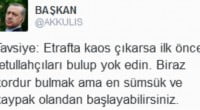New Constitution should have no barriers to mother tongue education

Date posted: March 14, 2012
11 March 2012 / BÜŞRA ERDAL, ABANT
The 26th meeting of the Abant Platform, which discussed problematic areas of the constitutional drafting process, suggested in its final declaration on Sunday regarding education being given in languages other than Turkish — one of the most contentious issues that needs to be addressed in the new constitution — that as long as the official language of the country is taught and learned, everyone should be given the opportunity to receive an education in their mother tongue.
| During the meeting, participants examined the constitutional process through the following subjects — citizenship and identity, mother tongue education, local governments and the balance between a unitary state and autonomy, freedom of religion, religious education and the position of the president in the constitution. |
“Education in one’s mother tongue is a fundamental human right. The constitution should not impose any restrictions on receiving an education in one’s mother tongue and it should make education in different languages possible. Furthermore, as long as the official language of the country is taught and learned, everyone has the right to use their mother tongue in education,” said the final declaration of the Abant meeting regarding the controversial issue of education in languages other than Turkish.
The Platform’s latest meeting took place in the northwestern province of Bolu between March 9 and 11 and included the participation of a wide spectrum of intellectuals, lawyers, political leaders and journalists.
During the meeting, participants examined the constitutional process through the following subjects — citizenship and identity, mother tongue education, local governments and the balance between a unitary state and autonomy, freedom of religion, religious education and the position of the president in the constitution.
Following three days of deliberation, participants at the meeting released a final statement on Sunday which included suggestions for the settlement of one of the most disputed issues in the new constitution.
For years, Turkey has aspired to change its current 1982 Constitution, which was written following the 1980 military coup and criticized by many for lacking a pro-democratic and pro-freedom approach.All parties in Parliament pledged ahead of last year’s general elections to contribute to the preparation of a new and democratic constitution for Turkey. A Constitution Commission was established by Parliament following the elections to work on the drafting of the new constitution.
Regarding the preamble of the constitution, the Platform said it should rely on principles of human rights, supremacy of law, democracy and respect to human dignity and not include any other articles like the non-amendable articles of the current constitution.
| The Platform suggested that the constitution should either include no provisions regarding religious lessons or it should include provisions for compulsory objective and pluralistic religious culture and moral education lessons. Either religious courses should be elective or there should be alternative courses to religious culture and moral education courses which promote critical thinking and develop pluralism with a different content. |
On citizenship and identities, the Platform overwhelmingly adopted two suggestions: “There is no need to define citizenship in the constitution. Furthermore, everyone who is born in neighborhoods dominated by the Turkish Republic are citizens of Turkey. In neighborhoods where the Turkish Republic does not dominate, the citizenship of one whose mother or father is a Turkish citizen is arranged according to law.”
Participants of the Platform also discussed three proposals on the administrative structure of Turkey and adopted them: “The administrative structure of Turkey is based on decentralization. All administrative tutelage on local administrations should be removed. As long as the official language is obligatory, use of other languages in communication with the public is free. Second, the determination and organizations of public services are made locally. Third, administration from the center is an exception while decentralization is the main principle in administration.”
The position of the president was among the issues discussed at the three-day meeting in Abant. According to the suggestions in the Platform’s final declaration, the new constitution should retain Turkey’s parliamentary system and the authority of the president should be narrowed down to make the position of the president like the one in democratic parliamentary systems where he/she has a symbolic position.
Although the president is elected for a five-year renewable term by a popular vote according to the current constitution, the Platform suggested that the president should be elected for a non-renewable seven-year term either by a popular vote or a qualified majority in Parliament.
On the contentious issue of freedom of faith and the position of the Directorate of Religious Affairs (DİB), the Platform made three suggestions: “Nobody can be subjected to discrimination in education, work life or the public domain due to their religious beliefs or statements. The DİB should be given the position of a foundation with full independence, other faith groups should establish similar foundations with state support or the DİB should be funded with the optional faith tax. Similar institutions should be established for other faith groups.”
Yet another controversial issue discussed at the Platform was the issue of religious courses. The Platform suggested that the constitution should either include no provisions regarding religious lessons or it should include provisions for compulsory objective and pluralistic religious culture and moral education lessons. Either religious courses should be elective or there should be alternative courses to religious culture and moral education courses which promote critical thinking and develop pluralism with a different content.
Source: Today’s Zaman http://www.todayszaman.com/news-273989-new-charter-should-have-no-barriers-to-mother-tongue-education.html
The Abant Platform is an independent think tank that takes its name from Lake Abant in the province of Bolu, the location of its first meeting. It is one of the most well-known programs of the GYV, which was established in 1994. Its mission and work were inspired by the GYV’s honorary president, Islamic scholar Fethullah Gülen.
Tags: Democracy | Freedoms | Hizmet and politics | Journalists and Writers Foundation | New constitution in Turkey |
























